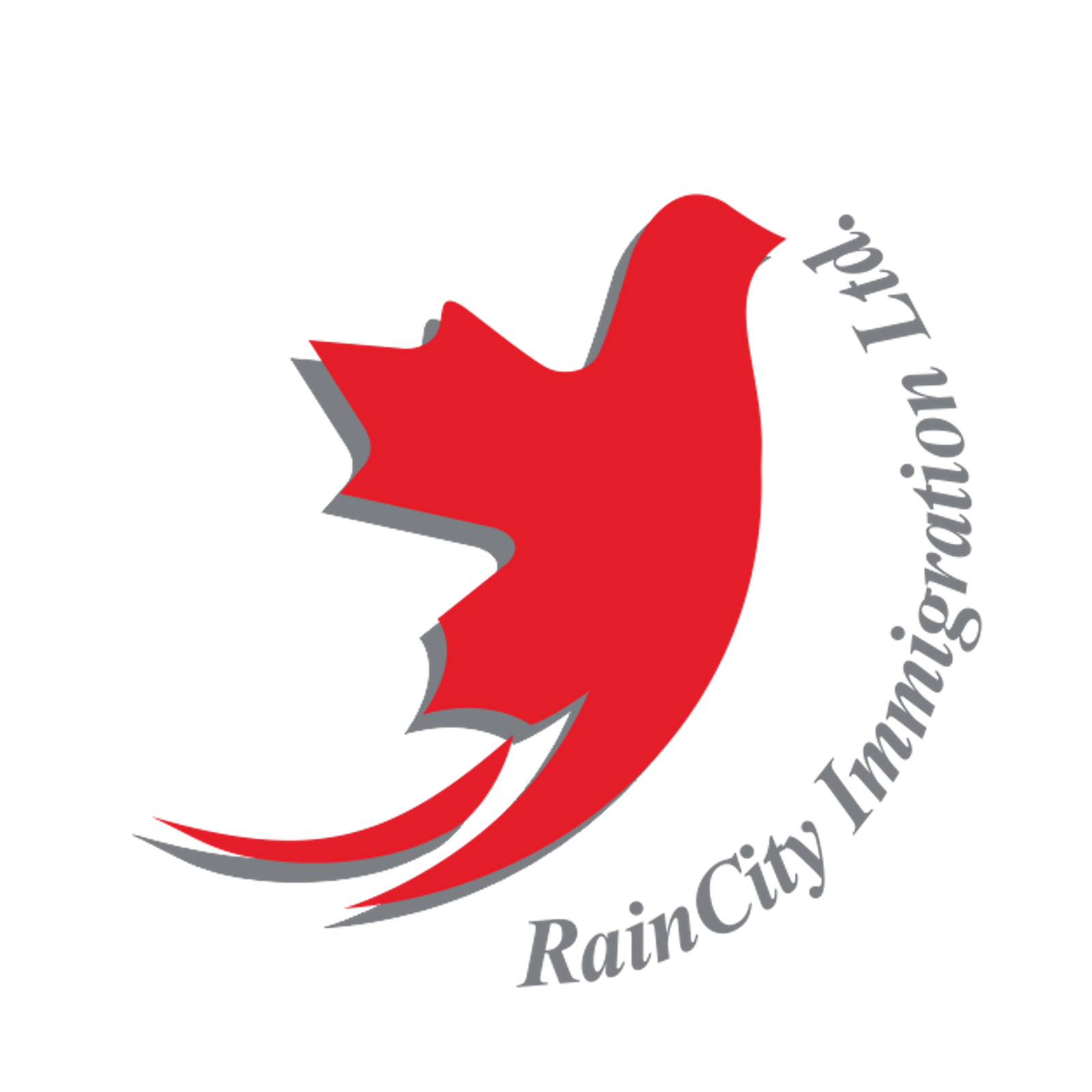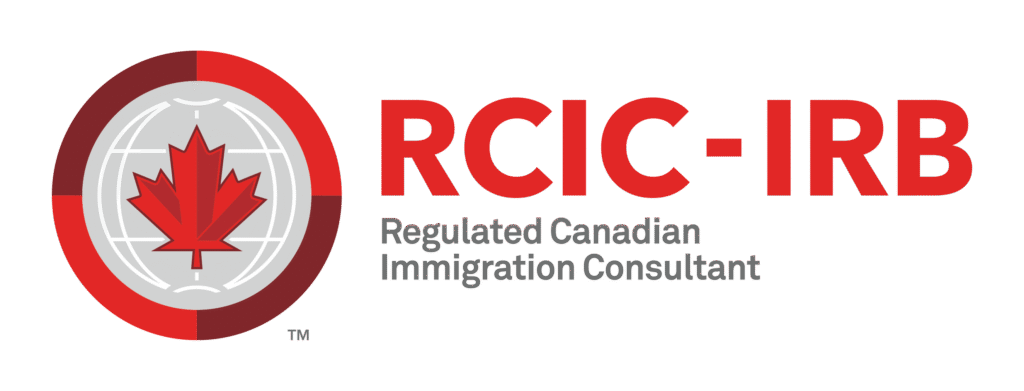Best Courses for Immigration to Canada

Do you know which are the best programs for immigration to Canada? Canada, the land of opportunities, has long been recognized as one of the top destinations for international students. This country boasts over 100 reputable universities and colleges offering more than 15,000 different academic programs. But really, what is the best program for immigration to Canada?
Choosing the best educational programs in Canada can significantly increase your chances of successful immigration and finding a job in this country. By aligning your educational choices with the demands of the Canadian job market, potential immigrants can enhance their visa prospects and enter fields with stable jobs and excellent growth opportunities.
To select the best programs for studying and immigrating to Canada, you first need to answer some important questions:
First of all, what field are you interested in or talented at?
What is your goal in choosing this program? Are you just looking to get a visa more easily?
Or are you intending to choose a field that has a good job market in the future?
Or are you looking to study in high-paying, profitable fields in Canada?
In this article, in addition to good programs for immigration to Canada, we will also introduce high-earning fields to help you make the best choice.
Keep in mind that while a program may be academically strong, in-demand in the job market, and lucrative for immigration to Canada, it may not align with your skills, interests, and capabilities, which could impact your success in that field; therefore, consider all these factors before choosing a program for studying in Canada.
What are the in-demand fields in Canada?
Currently, Canada is in need of skilled workers in areas like IT and information technology, healthcare, engineering, finance and business, transportation, agriculture, and agri-food. The federal government of Canada has introduced five job categories where studying can make it easier to obtain permanent residency. Accordingly, the fields in demand in Canada are:
1. Healthcare-related fields
2. STEM fields (Science, Technology, Engineering, and Mathematics)
3. Technical and vocational fields
4. Transportation-related fields
5. Agriculture and agri-food fields
Having proficiency in French at the B2 level is a significant advantage for immigrating to Canada through various immigration methods.
If you have work experience in these five fields or study in these areas in Canada, not only will your chances of success be higher, but you’ll also find it easier to apply for permanent residency in Canada after finishing your studies.
Considering the job sectors listed above by the federal government of Canada, we will now introduce the best fields of study for immigration to Canada.
What are the best fields for immigration to Canada?
Based on the required fields and occupations in Canada and the opinions of educational immigration experts, the best areas for immigration to Canada are:
Technology sector:
1. Computer Science
2. Data Science
3. Software Engineering
4. Cybersecurity
Medical sciences field:
5. Nursing
6. Medicine
7. Biotechnology
8. Bioinformatics
9. Public Health
10. Pharmacy
11. Dentistry
Engineering field:
12. Civil Engineering
13. Mechanical Engineering
14. Electrical Engineering
15. Petroleum Engineering
16. Chemical Engineering
17. Architecture
Environmental studies field:
18. Environmental Engineering
19. Renewable Energy
20. Environmental Science
Field of Management and Finance:
21. Accounting
22. Finance
23. Supply Chain Management
24. Business Administration
Technical Fields:
Courses such as plumbing, electrical work, carpentry, welding, cabinetry, heating and cooling system expertise, heavy-duty truck driving, and industrial equipment maintenance at the best colleges in Canada.
Detailed review of the best fields for study in Canada
1. Tech fields (Computer Science and IT)
The information technology and technology industry in Canada is rapidly growing. Cities like Toronto, Montreal, Vancouver, and Waterloo have become hubs for the tech industry and centers for Canadian startups. In the coming years, the country will need more data science specialists, AI experts, cybersecurity professionals, and software engineers.
Computer Science and IT are among the high-paying fields in Canada; that’s why many international students prefer to study these disciplines at Canada’s best universities. The Canadian government also offers various scholarships for studying in these fields.
After graduating in Computer Science and IT in Canada, you can work in various jobs such as information systems analyst, database analyst, data scientist, software engineer, computer programmer, web designer and developer, and also as a cybersecurity expert.
The best universities in Canada for studying computer science and information technology
University of British Columbia
University of Toronto
University of Waterloo
McGill University
McMaster University
Requirements for admission to computer science and information technology programs in Canada
The requirements for admission to computer science and IT programs in Canada vary depending on the degree level and the university, but generally, you need the following:
GPA: at least 14
Language score: IELTS minimum 6.5 or the equivalent (very few universities accept students with an IELTS score of 6 conditionally)
Approval from a Canadian university supervisor: required for research-based master’s or doctoral programs.
2. Health and Medical Sciences
As the population of Canada ages, there’s been a rising demand for healthcare professionals in the country. It faces a severe shortage of workers in areas such as nursing, pharmacy, and specialized fields like medical imaging. All these programs are considered high-paying options in Canada.
However, studying medicine in Canada is tougher than in other fields, and obtaining a degree in this area takes more time. To study in these programs in Canada, you need to have high skills and competencies and engage in research.
The best universities in Canada for studying health and medicine
University of Toronto
McGill University
University of British Columbia
University of Alberta
Queen’s University
Dalhousie University
McMaster University
Requirements for admission to medical and health science programs in Canada
GPA: at least 15
Language score: IELTS minimum 7 or the equivalent (some universities also accept an IELTS score of 6.5)
Note:
Some Canadian universities do not accept international students for health and medicine-related programs. Studying medicine in Canada is not directly accessible for international students. They first need to complete a bachelor’s degree in a basic science field like biology, chemistry, or biological sciences, and then take the medical entrance exam called the MCAT; if they pass, they can pursue this field.
3. Engineering fields
Overall, engineering is one of the lucrative fields in Canada. Engineers play a significant role in infrastructure, environmental, and energy projects in Canada. The country is on the lookout for skilled professionals in civil, mechanical, electrical, and petroleum engineering. As a result, engineering graduates are in high demand in Canada and have access to more job opportunities.
Students familiar with software like CAD and AutoCAD have a better chance of landing specific engineering jobs after graduation. Engineering in Canada is taught practically by expert professors. The Accreditation Board for Engineering and Technology (ABET) has recognized Canadian universities as some of the best in the world for engineering.
Aerospace engineering, environmental engineering, biomedical engineering, mechanical engineering, civil engineering, and marine architecture are among the best programs to study in Canada.
The best Canadian universities for studying engineering include:
University of Waterloo
University of Toronto
University of Alberta
McGill University
Requirements for admission to engineering programs in Canada vary by level of study and university; however, in general, you will need the following:
GPA: A minimum of 14
Language score: IELTS minimum 6.5 or equivalent (very few universities accept a conditional admission with an IELTS score of 6)
Approval from a supervisor at a Canadian university: Required for research-oriented master’s or doctoral programs.
Having a published paper in reputable scientific journals: Required for research-oriented master’s or doctoral programs.
4. Environmental Studies
With the growing focus on sustainability, environmental science and renewable energy specialists are essential for Canada’s green initiatives. These professionals help Canada achieve its climate and environmental goals. There is high demand for experts in fields like ecosystem management, forestry, marine mapping, wildlife biology, energy, and soil in several provinces across Canada, making them some of the top fields of study in the country.
Top Canadian universities for studying environmental sciences
University of British Columbia
University of Toronto
McGill University
University of Alberta
University of Guelph
Dalhousie University
Simon Fraser University
University of Saskatchewan
Requirements for admission to life sciences programs
The necessary requirements for admission to life sciences programs in Canada vary depending on the degree level and university, but generally, you will need the following:
GPA: Minimum 14
Language score: IELTS at least 6.5 or equivalent (a very limited number of universities accept IELTS 6 conditionally)
Supervisor approval from a Canadian university: Required for research-based master’s or doctoral programs.
Having a published paper in reputable scientific journals: Required for research-focused master’s or doctoral programs.
5. Management and Finance fields
Management, accounting, and finance fields are also among the best fields for immigration to Canada. Canada specifically needs professionals in accounting, finance, banking, and supply chain management. Studying in these fields will equip you with new skills, knowledge, and a comprehensive understanding of the business world in Canada.
Some business management-related jobs facing a shortage of manpower in Canada include management consultants, banking specialists, and financial investment experts.
Top Canadian universities for studying business management
McGill University
York University
Smith School of Business at Queen’s University
Rotman School of Management at the University of Toronto
Requirements for admission to business management programs in Canada
The necessary requirements for admission to business management programs in Canada vary depending on the degree level and university, but generally, you will need the following:
GPA: Minimum 15
Language score: IELTS minimum 7 or equivalent (only a very limited number of universities accept a score of 6.5). GRE score minimum 300 or GMAT minimum 500 (only a very limited number of universities accept students without GRE or GMAT scores). Leadership experience and executive roles are required (this does not apply to all universities).
6. Vocational and technical fields
Canada is not like Iran where everyone is chasing a university degree and a bachelor’s! Technical and vocational fields are considered among the best study programs in Canada. These technical programs are also among the highest-paying fields in Canada.
The demand for skilled labor in these areas in Canada is very high. By studying technical fields at Canadian colleges, you can enter the job market and earn a decent income.
The best colleges in Canada for technical studies:
George Brown College
Seneca College
Fanshawe College
BCIT
Conestoga College
Admission requirements for Canadian colleges:
These college programs are mainly suited for those who want to quickly enter the Canadian job market. You can also study in Canadian colleges with a high school diploma. You can also study in Canadian colleges with a high school diploma.
GPA: minimum 12 in high school (12-year diploma)
Minimum GPA for graduate programs: 12 in bachelor’s degree
Language score: IELTS 6 and above or equivalent
Note
To get a study permit for Canada, it’s important that your previous field of study is related to the new field you're getting admitted to. Or, your new field of study should be interdisciplinary, like management, business, finance, etc. If you're interested in studying one of Canada's popular programs but your academic background is different, don't worry at all. After receiving your Canadian study permit and arriving in Canada, you can change your university and program of study. For example, you could start studying in your desired program at a college and complete any necessary prerequisites if needed.
The best fields for immigration to Canada by province:
Every province in Canada has its own immigration programs. Each province faces a shortage of specialized workforce in specific areas and professions. Therefore, they are seeking to attract students and professionals in certain fields.
British Columbia
Fields in civil engineering and construction
Fields in health and medicine
Fields in computer science and technology
ECE fields (teachers and assistants in kindergartens)
Technical vocational fields
Accounting
Ontario
Fields in computer and Tech
Technical vocational fields
Fields in health and medicine
Alberta
Tourism and hotel management fields
Culinary, restaurant management, and food industry fields
Computer science and IT fields
Some medical fields
Vocational fields
Saskatchewan
Engineering fields
Agricultural and soil fields
Environmental fields
Vocational fields
Business management and marketing
Newfoundland and Labrador
Health and medical fields
Tech fields
Aquaculture fields
Some tech fields
Vocational fields
Nova Scotia
Construction and civil engineering fields
Vocational fields
Health and medical fields
ECE fields (Kindergarten teachers and assistants)
New Brunswick
Health and medical fields
Forestry fields
Education fields
Food industry fields
Tech fields
Vocational fields
High-paying fields in Canada
One of the important factors for choosing the best field of study in Canada is the income and profitability of those fields in the future. In Canada, like any other country, there are several fields of study that are considered high-paying.
In general, some of the high-paying fields in Canada include:
1. Engineering
1. Electrical Engineering
Annual income: $135,777
2. Civil Engineering
Annual income: $110,895
3. Mechanical Engineering
Annual income: $120,350
4. Chemical Engineering
Annual income: $115,000
5. Software Engineering
Annual income: $132,638
2. Medical sciences
1. Doctor
Annual income: $253,843
Being a doctor is probably the highest-paying profession in Canada. Doctors’ salaries can go up to $300,000 a year, especially for surgeons, cardiologists, radiologists, or anesthesiologists.
2. Dentist
Annual income: $177,266
Dentistry in Canada isn’t covered by government insurance. So, dentists are free to set up their private practices, which comes with significant earnings.
3. Psychologist
Annual income: $138,000
The use of psychotherapy is on the rise among people as they recognize the importance of mental health. Therefore, studying psychology leads to a good career outlook and is one of the high-demand jobs in Canada with high income as well.
Read more: Job market for psychologists in Canada
4. Registered Nurse
Annual income: $89,579
According to a survey where 92% of Canadians had very positive views about nurses, nurses in Canada are regarded as some of the most respected professionals.
5. Optometrist
Annual income: $103,328
3. Computer science and information technology
1. Product Owner
Annual income: $118,650
2. Full Stack Developer
Annual income: $87,915
3. Data Scientist
Annual income: $135,419
4. AI Specialist
Annual income: $110,020
5. Cybersecurity Specialist
Annual income: $123,216
6. Web Developer
Annual income: $104,813
These fields are among the most popular areas of computer science and IT that are rapidly changing with daily advancements in technology, and they are some of the highest-paying jobs in Canada.
Specializations in banking, financial management, environmental studies, renewable energies, and accounting are also considered some of the highest-paying fields in Canada.
4. Arts
1. Architecture
Annual income: $94,153
If you’re interested in the arts but also want a high-paying job, architecture is a good choice. This profession has a lot of financial security in Canada regardless of where you want to live, and there’s always a demand for it.
5. Mining industry
Annual income: $128,221
Studying mining engineering isn’t suitable for everyone because after graduation, you need to have a high physical and mental capability to work in this field. That said, these jobs pay well in Canada.
6. Law
Annual income: $97,744
If you’re tempted to study law, you should know that not all lawyers do the same kind of work. For instance, there are significant differences between a prosecutor’s lifestyle and that of a divorce lawyer. Choose your law specialization based on your personal interests. This field is one of the highest-paying in Canada.
Banking specialists, financial managers, environmental studies, renewable energy, and accounting are also among the highest-paying fields in Canada.
Popular artistic fields in Canada
It’s predicted that artistic jobs will grow by 14% from 2020 to 2030, so now is a great time to pursue studies in the arts. There’s a demand for artistic jobs in Canada, and the best way to break into this job market is to gain academic knowledge by studying at universities or colleges.
If you’re interested in studying arts, here’s a list of artistic disciplines in Canada. Some of these programs are offered at universities, while others are available at colleges and at various educational levels, including diplomas, bachelor’s, master’s, and doctoral degrees.
1. Fine Arts
You will be studying fine arts with a focus on visual arts. Visual arts include oil painting, watercolor, drawing, printmaking, photography, and sculpture. By studying in this field and acquiring the necessary knowledge, you’ll be able to put together a portfolio of your work to help in job hunting and breaking into the job market.
With a fine arts degree, you can work as an art director, artist, photographer, or multimedia designer.
Best universities in Canada for studying fine arts:
University of Toronto
University of British Columbia
University of Alberta
McMaster University
Emily Carr University of Art and Design
University of Waterloo
2. Graphic Design
Graphic design involves using various graphic elements (photos, paintings, designs) and textual elements, implementing them across different media like magazines, books, and advertisements for media and television. The goal of creating graphic designs is to grab the audience’s attention and encourage them to take action, like purchasing a product.
By earning a graphic design degree in Canada, you demonstrate to future employers that you have a comprehensive education in graphic arts technology and know how to use it effectively.
With a graphic design degree, you can work not only as a graphic designer but also in other roles like multimedia artist, animator, marketing specialist, art director, product developer, production artist, UI designer, or UX designer.
Colleges and universities in Canada for studying graphic design:
Laval University School of Design
Fraser Valley University
Ontario College of Art and Design (OCAD)
York University
Emily Carr University of Art and Design
Kwantlen Polytechnic University (KPU)
3. Digital Arts
Digital art is an art form created entirely on a computer with the help of technology. In this method, you need to scan your drawn images and upload them to the computer, then finish the work using special software.
By studying digital arts, you will learn about sound, interactive design, illustration, digital 3D, animation, video, and graphic design.
After graduating in digital arts in Canada, there are many job opportunities available to you. These jobs include television program cameraman, TV producer, art teacher, photographer, painter, illustrator, animator, editor, commercial or industrial designer, and art director.
Universities and colleges in Canada for studying digital arts:
University of British Columbia
York University
Langara College
Fraser Valley University
4. Cinematography and Film/Video Production
Once you receive your degree in cinematography and film/video production, you will be ready to start as a professional cinematographer. In this job, you are responsible for how each scene in the film is created. Your options go beyond making films, as you can also work on television shows, commercials, and videos. You will also qualify to produce films. This way, you will be in charge of the entire filmmaking process.
Universities and colleges in Canada for studying cinematography and film/video production:
Toronto Metropolitan University
Concordia University
York University
Vancouver Film School
Toronto Film School
How do I choose the best field of study in Canada?
If you’re at the beginning of your study immigration journey to Canada and still don’t know which field to choose for your studies in this country, or which field would give you a better chance of getting a visa, we’ll answer these questions here.
When choosing the right field in Canada, consider the following points:
First, assess your academic background, such as your GPA, language score, and educational background.
Then, search for programs related to your previous degree at
Canadian universities. Select a few universities whose admission criteria for your desired program align with your academic qualifications.
Prioritize programs that relate to your academic background. However, if you don’t meet the admission requirements for related fields, consider interdisciplinary programs like management, business, finance, leadership, and so on. These programs typically don’t require a related academic background, so you can apply with almost any degree.
You may be interested in a particular field, but you might not have a chance of getting admitted to that field, or it could lower your chances of getting a visa because it doesn’t align with your academic and career path. So, to increase your chances of obtaining a Canadian student visa, don’t always prioritize your interest in a field; instead, pay attention to how it relates to your academic and professional background. Although after obtaining a visa, you can change your field to study something you’re passionate about.
Also, consider the location, city, and province of the university. Some fields are more popular and in demand in certain provinces of Canada. For example, agricultural and soil-related fields have much higher demand in Saskatchewan.
At RainCity, with our team of experienced specialists in obtaining admissions and student visas for Canada, we always accurately assess each applicant’s educational situation and consider their study path when selecting a field and university; thus, we propose programs and universities for admission that have a higher chance of securing a Canadian visa.
High school fields of study in Canada
The high school education system in Canada is different from that in Iran. In Canadian high schools, there aren’t distinct fields of study like experimental sciences, mathematical sciences, humanities, and arts. Instead, students take a specific number of mandatory and elective courses each academic year, and based on these, they choose their major when they enter college or university in the future.
Some of the required subjects in high school in Canada include mathematics, basic sciences, social studies, and planning. Elective courses at Canadian high schools include theater, journalism, acting, art, dance, marketing, law, psychology, management, sports, physics, chemistry, geology, and automotive studies.
For more information, check out the page on studying in Canadian high schools
Frequently asked questions
What are the best fields for immigration to Canada?
The best fields for immigration to Canada are those that have high demand and good job prospects. Fields such as medical sciences, information technology (IT), engineering, and technical disciplines are among the best areas of study for immigration to Canada.
What are the best engineering fields for immigration to Canada?
The fields of software engineering, civil engineering, electrical engineering, mechanical engineering, chemical engineering, petroleum engineering, aerospace engineering, and environmental engineering are the best engineering fields for immigration to Canada.
What are the best humanities fields for immigration to Canada?
Psychology, business management, sociology, education, international relations, and social work are some of the best humanities fields for immigration to Canada.
What are the best experimental fields for immigration to Canada?
Biotechnology, medicine, health sciences, environmental sciences, pharmacy, dentistry, agricultural studies, food sciences, and data science are some of the best experimental fields for immigration to Canada.
Which fields have a good job market in Canada?
Medical sciences, computer and IT, engineering, finance, management and business, environmental sciences, and of course, technical and vocational fields have good job markets in Canada.
What are the high-paying art fields in Canada?
Architecture, industrial design, graphic design, media arts and animation, filmmaking, and fashion design are some of the high-paying artistic fields in Canada.





